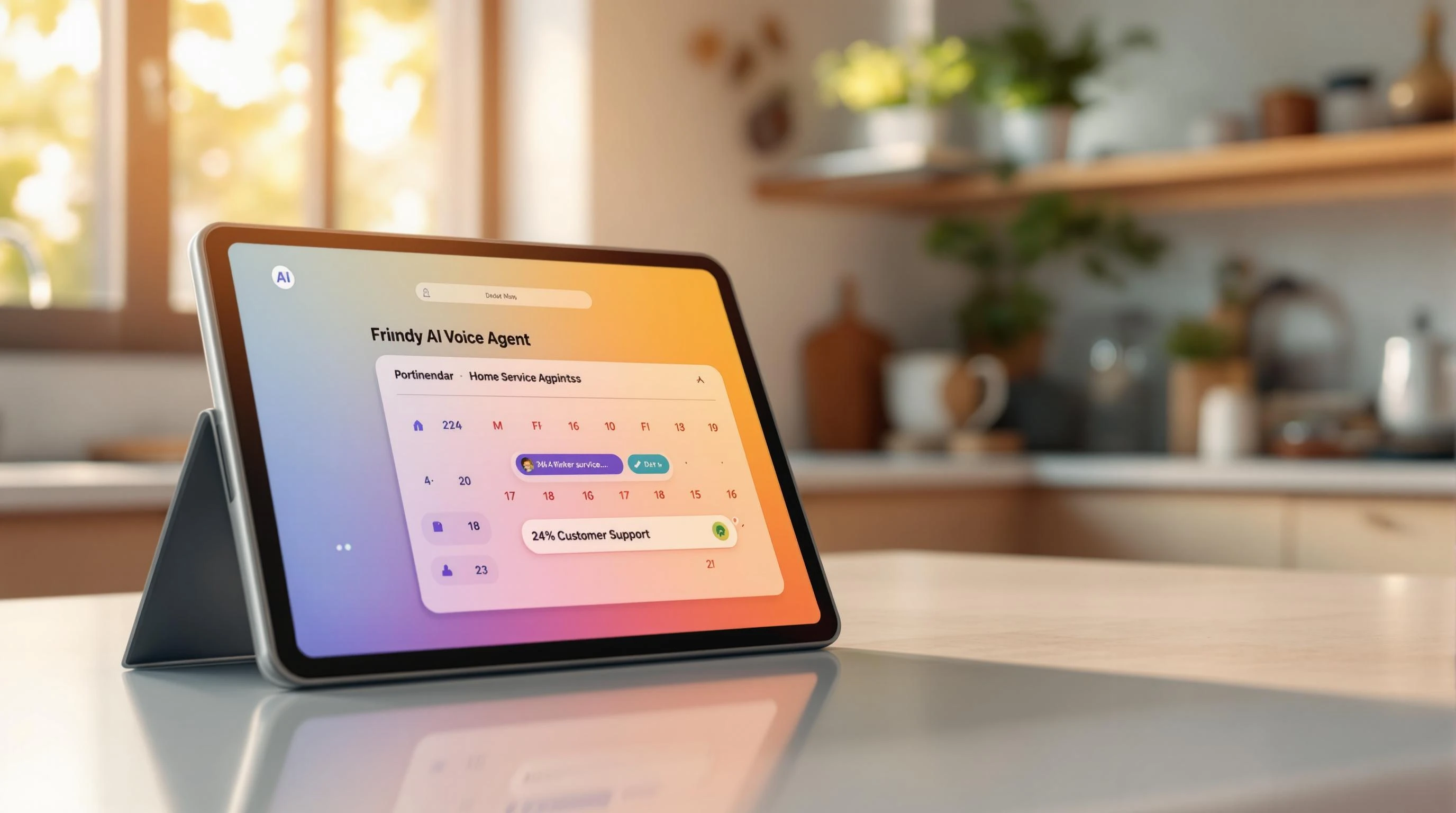
Dec 28, 2024
6 min read
AI voice agents and human receptionists each have unique strengths, and choosing between them depends on your business needs. Here's a quick summary:
AI Voice Agents: Lower long-term costs, 24/7 availability, handles high call volumes, and excels at routine tasks. Plans start at €399/month.
Human Receptionists: Higher costs (~$50,000/year), limited to business hours, but better at handling complex, sensitive, and emotional interactions.
Quick Comparison
Many businesses in 2024 are adopting hybrid models, using AI for routine tasks and humans for complex cases. This approach balances efficiency, cost, and customer experience.
1. AI Voice Agents
Cost
Plans for AI voice agents start at €399/month, offering a clear and predictable pricing structure compared to the fluctuating costs of traditional staffing. For businesses needing more robust solutions, enterprise-level plans are available at €1,250/month.
Efficiency
AI voice agents improve customer interactions by automating tasks like call routing, scheduling, and answering FAQs. This automation reduces average handling time by 40% [2], while maintaining consistent service quality and managing multiple inquiries at once.
Customer Experience
With the help of NLP, AI voice agents deliver uniform, high-quality interactions. Features like 24/7 availability, support for over 32 languages, and standardized responses ensure dependable service, no matter the call volume or time of day.
Scalability
AI voice agents adapt to call volume spikes effortlessly, maintaining service quality. Real-time analytics provide insights into metrics like call duration, customer satisfaction, and response accuracy [1]. This data helps businesses refine their communication strategies over time.
While AI voice agents offer efficiency and scalability, human receptionists remain irreplaceable for managing more complex and personalized interactions.
2. Human Receptionists
Cost
Employing human receptionists comes with a yearly expense of approximately $50,000, covering salaries, benefits, and additional costs like training, workspace, and equipment [1]. Unlike AI voice agents, these costs can fluctuate and are less predictable.
Efficiency
Human receptionists may not handle multiple calls at once like AI systems, but they shine in situations requiring critical thinking and problem-solving. McKinsey's research highlights their strength in managing complex tasks and making informed decisions [2].
Customer Experience
Human receptionists are particularly effective in industries like healthcare and finance, where emotional intelligence is essential. They excel at handling sensitive situations, offering empathetic and context-aware responses that build trust and rapport [3].
Scalability
Expanding a team of human receptionists involves hiring, training, and careful planning, which can take time and increase costs. However, human teams bring value through specialized skills and flexibility. Cross-training and team rotation help businesses achieve:
Skill development tailored to specific needs
Extended coverage through rotational shifts
Reliable backup support during busy periods
While human receptionists offer a personal touch and excel in emotional intelligence, their higher costs and limited scalability present challenges for businesses weighing their options against AI solutions.
Related video from YouTube
Advantages and Disadvantages
Choosing between AI voice agents and human receptionists depends on understanding their strengths and weaknesses, as shown in the table below:
Data reveals that AI voice agents can cut average handling time by 40% [2]. However, the choice often depends on industry demands. For example, sectors like healthcare and financial services, which rely on emotional intelligence and complex decision-making, tend to favor human receptionists. On the other hand, industries with high call volumes often see better results with AI voice agents [1].
A rising trend in 2024 is the use of hybrid models, blending AI for routine tasks with human receptionists for more intricate inquiries. This approach allows businesses to combine the best of both technologies, improving customer interactions.
While AI continues to evolve, especially in voice recognition and comprehension [4], the human touch remains critical for situations that call for empathy and nuanced interactions. The right choice ultimately depends on a business's specific goals and the needs of its customers.
Conclusion
When deciding between AI voice agents, human receptionists, or a mix of both, businesses need to align their choice with their operational needs and customer service goals. Many are now turning to hybrid solutions that merge the strengths of automation with the personal touch of human interaction.
Take MNDFL Meditation, for example - they've shown how hybrid models can effectively combine automation's efficiency with tailored customer care [4]. In industries with a high volume of routine inquiries, AI voice agents can cut costs by up to 30% [1]. On the other hand, sectors like healthcare and financial services often depend on human receptionists for their ability to address complex issues and respond with emotional intelligence.
Advances in AI technology in 2024 have further refined service delivery. For instance, AI systems can now manage initial inquiries and seamlessly hand over more complex cases to human agents [3]. These improvements are reshaping how businesses assess costs and allocate resources while ensuring quality service.
To successfully implement a hybrid model, businesses should focus on:
Striking the right balance between AI and human roles
Training both AI systems and staff to improve performance
Monitoring key metrics to uphold customer satisfaction
Adjusting strategies based on feedback and evolving needs
The future of customer service lies in blending AI's speed and efficiency with the nuanced communication skills of humans. As technology progresses, businesses must prioritize fast, cost-effective service without compromising trust or satisfaction. The best solutions will combine AI's capabilities with human understanding to meet changing customer expectations.





